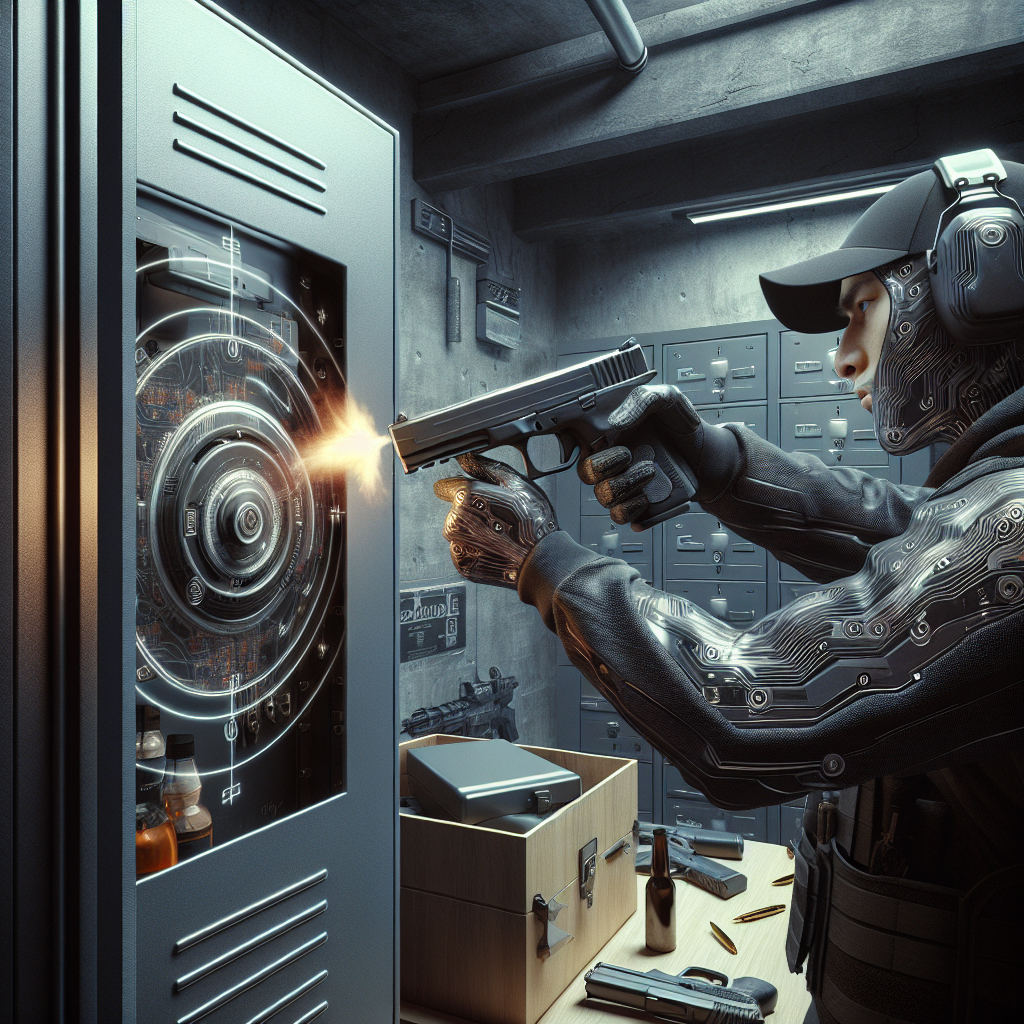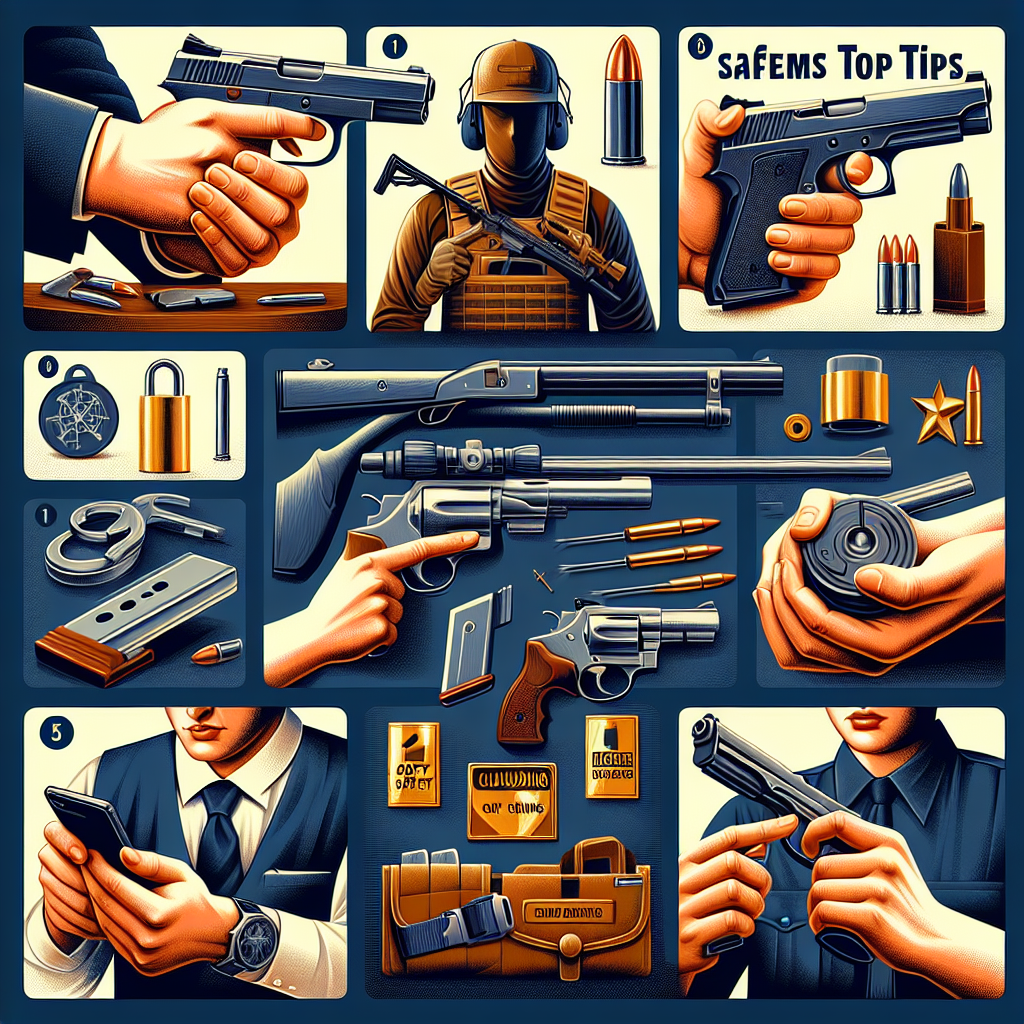(We tried one of those AI Publishing Services - a critique.) How to Practice Firearms Safety: Top Tips from a Seasoned Shooter.
- Jordan Billings
- Sep 13, 2024
- 6 min read
Updated: Nov 28, 2025
So, AI is making huge waves as it gets more and more advanced - almost everyone has heard of how super cool it is and how easy it will make everybody's lives.
As someone who struggles coming up with topics, writing lengthy dissertations (and then boiling them down to SparkNotes - or the inverse of turning PowerPoints into novels) the concept of having something come up with "material" for you sounds like a great way to save time and effortlessly build up clout, or backlink credits, or just a good way to spam a lot of content and claim it as "your own."
So in the true spirit of things, I set our future robot overlords to the task of writing a "Top 10 List" for safety tips. I figured (most) everyone should be relatively familiar with enough basics to see whether or not this is a fruitful endeavor, or if it regurgitates some of the absolute worst ideas we have ever seen. This is a complete blind study, as I have very little idea how AI prompting works - The topic is "Top 10 Safety Tips For Firearm Handling" and I just let it run wild; no further questions, no clarifications, no other prompts. I did throw together a list previously about what I thought was important for first-timers to understand, so this seemed like as good a place as any to test the waters.
After this segment, it will be 100% AI written - I will add in my thoughts and feelings after the entire article after a second divider.
As a seasoned shooter, I've spent countless hours perfecting my craft and understanding the importance of firearms safety. Whether you are a beginner or someone with years of experience, there are fundamental safety tips that every shooter should adhere to. In this guide, I'll share some of the most critical firearms safety practices to help you stay safe while enjoying the thrill of shooting.
1. Treat Every Firearm as If It's Loaded
One of the golden rules of firearms safety is to always treat a gun as if it is loaded, even if you know it isn't. By following this rule, you cultivate a habit of respecting the power of firearms and handling them with care.
2. Keep Your Finger Off the Trigger
Until you are ready to shoot, keep your finger off the trigger and along the frame or slide of the firearm. This simple action prevents accidental discharges and ensures that you maintain control over the weapon at all times.
3. Point the Muzzle in a Safe Direction
Always point the muzzle of the firearm in a safe direction, away from yourself and others. Whether you are at the range or in a hunting scenario, being mindful of where the muzzle is pointed can prevent tragic accidents.
4. Be Aware of Your Target and What's Beyond It
Before you take a shot, identify your target and what lies beyond it. Bullets can penetrate through multiple surfaces, so ensuring a clear and safe trajectory is crucial for preventing unintended harm.
5. Store Firearms Securely
When not in use, firearms should be stored securely in a locked cabinet or safe. Ammunition should be stored separately to prevent unauthorized access. Proper storage not only prevents accidents but also deters theft.

6. Use Protective Gear
Wearing appropriate protective gear, such as ear and eye protection, is essential when shooting. These items safeguard your senses from the loud noise and potential debris associated with firing a gun.
7. Educate Yourself and Seek Training
Continuous education and training are key to improving your shooting skills and safety awareness. Take courses from certified instructors to enhance your knowledge and proficiency with firearms.
8. Avoid Mixing Alcohol or Drugs with Shooting
Alcohol and drugs impair judgment and coordination, making it unsafe to handle firearms. Ensure you are in a clear state of mind whenever you engage in shooting activities.

9. Follow Range Rules and Etiquette
Whether you are at a shooting range or out in the field, always adhere to range rules and demonstrate proper shooting etiquette. Respecting others' space and following established protocols contribute to a safer shooting environment.
10. Regularly Maintain Your Firearms
A well-maintained firearm is less likely to malfunction. Clean your firearms regularly, check for wear and tear, and ensure that all components are functioning correctly before each use.
In conclusion, practicing firearms safety is not just a responsibility but a critical aspect of being a responsible gun owner and shooter. By incorporating these top tips into your shooting routine, you can enjoy your passion for firearms while prioritizing safety above all else.
Remember, safety first, always.

Me again;
OK, so that was interesting - it has definitely gotten better at generating images but it still isn't at 100%. They are a bit "out there" but it does actually show progress. Not something I would just hit "generate" on and then try and pass of to the same extent as an actual photo op for content.
There isn't anything super glaring in terms of the content it generated; we have the "4 Basics", safe storage, find some decent training, ear/eye pro, no drugs/alcohol, follow the range rules and maintain your firearm. All pretty standard stuff.
I use a variation of Coopers Big 4; the original setup is perfect for new shooters - which is why any time you go to a range they have them plastered everywhere - and if dogmatically adhered to, you have to screw up 3 out of the 4 to have anything super bad happen, which is all well and good but does not provide a long term training benefit. Those rules do not apply 100% to the real world application of defensive carry, but they are a good start.
Safe storage is important, but it doesn't say who is/isn't an "authorized persons" nor does it give any examples of proper safe storage - putting a trigger lock on a gun technically counts, but doesn't deter theft. Typically I go through all your basic storage options and the pros/cons involved.
No drugs/alcohol is also a good one - especially when there are state laws that legalize certain substances; marijuana being the big one - by Federal law it's still a HUGE nope! They ask you on your 4473 when you go to purchase a gun whether or not you have done illegal substances. Answering yes gets you a real quick denial, but the State will never tell you that. But don't worry, I will. Not only that, but you have ANYTHING in your system and have to defend yourself; you are going to have a real bad time of it. Any impairment to your judgement in that regard is going to really quickly sink your case.
Follow whatever the ranges' rules there are - every one of them seems to do things a little bit differently. If you don't know, ask. (Most of the time they are going to walk you through their setup the first time.) For outdoor ranges with zero supervision (i.e. you shooting in a gravel pit) make sure you are being extra careful - doubly so if you are shooting with others.
And basic maintenance is always important; a clean and well maintained gun will last you a good long time.
All in all, not bad - but not something I would hedge a solid income off of. Nothing beats real world experience and practice, or being able to put that experience into words that go beyond just a surface level understanding of how all of this works. Does it have it's place? Most likely - I might give it a couple rounds of idea generation, but I wouldn't rely on it to completely generate articles, much less a program. A good exercise in benchmarking, and definitely something to keep an eye on - I'm sure someone who specializes in the natural progression and build-out of these types of programs could utilize it to a much higher degree, but for an entry level it's serviceable.
The main takeaway would be that if you don't know about the topics it's spitting out, you are relying HEAVILY on it being correct, which I am assuming it gets it's data from SOMEWHERE - in turn that leaves room for error and that could be a high risk for someone just looking to ride an easy gravy train.










Comments